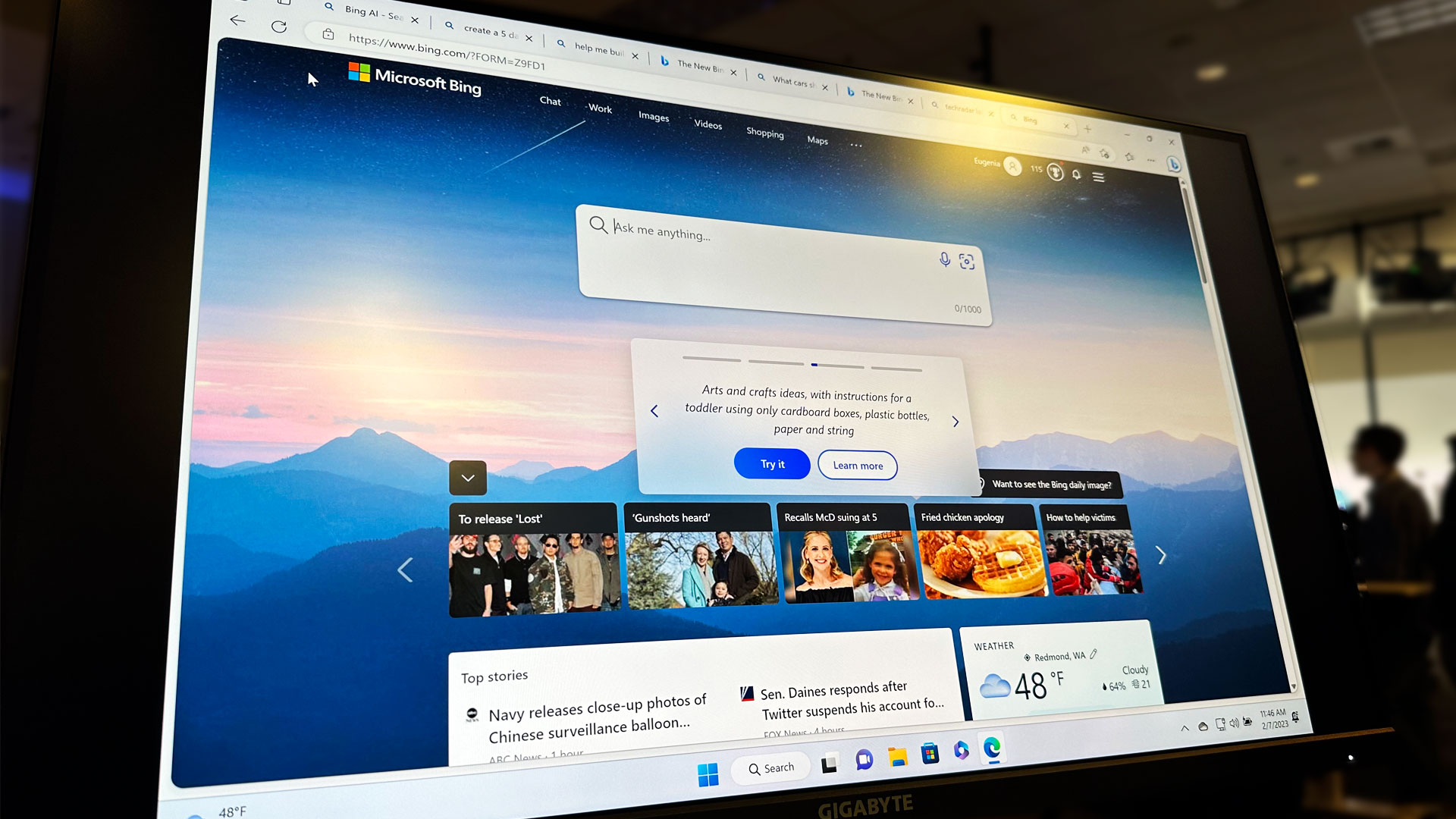Microsoft makes it much easier to use ChatGPT-powered Bing – with a catch
Microsoft account no longer required, but there’s a strict query limit

Sign up for breaking news, reviews, opinion, top tech deals, and more.
You are now subscribed
Your newsletter sign-up was successful
Microsoft’s Bing chatbot is now available to use without signing into a Microsoft account, you’ll doubtless be pleased to hear.
This means that anyone can now jump on and start quizzing the ChatGPT-powered AI on whatever topic is on their mind, but there’s a caveat.
As some of you have noticed, we’ve started rolling out unauthenticated chat access on Bing. Seeing only 5 chat turns per session? Sign in to have longer conversations.May 17, 2023
Windows Central spotted the tweet from Michael Schechter, VP of Search Growth and Distribution (Bing) at Microsoft, announcing that the Bing AI now offers unauthenticated chat access.
However, while you won’t have to sign in to use the AI, you’ll be limited to pretty short conversations – just five queries in a session. Those signed in get 20 queries per conversation.
In other Bing AI news, a further step forward for the chatbot is the addition of a share button and more export options, as well as an improved copy and paste experience, useful little touches (as Neowin flagged up).
We recently upgraded Bing Chat with export and share features. We’ve also improved the copy and paste experience. Below is an example of the tool tip which includes copy, download and share with download to PDF in action. Stay tuned for more export options. pic.twitter.com/vEgaDY4dqbMay 17, 2023
Analysis: Bringing Bing to everyone faster
Remember when Bing AI was first launched? The chatbot got caught up in all sorts of controversial weirdness as a result of going off the rails in long chat sessions, leading Microsoft to impose strict limits on session length to tackle that particular problem.
That limit was five queries per session – exactly what unauthenticated users are getting now. In other words, it’s the bare minimum. (Well, clearly it’s the bare minimum – any lower than five would leave little or no opportunity to explore any topic further).
Sign up for breaking news, reviews, opinion, top tech deals, and more.
Still, the absolute minimum is very much better than nothing, so we’re glad to see Microsoft take this route. It makes for a convenient way for those who haven’t tried out the Bing AI yet to do so, and of course, that should mean extra traffic for Microsoft, too.
Doubtless Microsoft hopes that by giving folks a taster of Bing, it’ll impress them enough to sign in for the full lengthier chat experience.
Darren is a freelancer writing news and features for TechRadar (and occasionally T3) across a broad range of computing topics including CPUs, GPUs, various other hardware, VPNs, antivirus and more. He has written about tech for the best part of three decades, and writes books in his spare time (his debut novel - 'I Know What You Did Last Supper' - was published by Hachette UK in 2013).